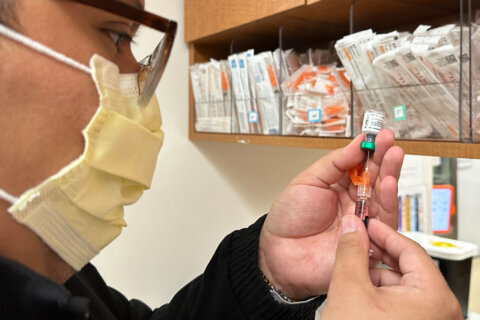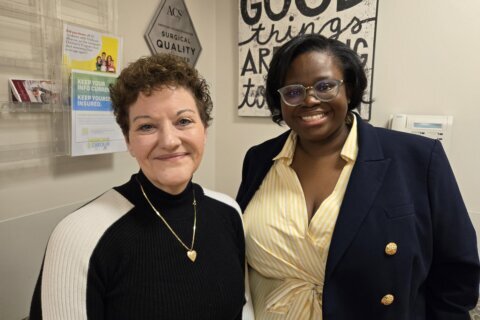While the shortage of some critical drugs used to treat cancer patients is not as severe at one Virginia hospital system as it was in the spring, another drug has recently become short in supply.
Dr. John Deeken, president of Inova Schar Cancer Institute, said the general shortage of one drug started around March, and then “rapidly with a few more in the early summer.” In the last month or two, he said, circumstances have improved, but there are still ongoing shortages.
A survey of 29 cancer centers across the country found that 72% experienced a shortage of the drug carboplatin, and 59% reported a shortage of cisplatin, CNN reported last week. The responses were part of a survey conducted by the National Comprehensive Care Network.
First, Deeken said, there was a shortage of Fluorouracil, which is used to treat colon and rectal cancers and is involved in treatment plans for breast, head and neck cancers. Then, there was a shortage of cisplatin, which Deeken described as “central to how we treat testicular cancer patients, head and neck cancer, lung cancer, cervical cancer and others.”
Carboplatin, used to treat lung and ovarian cancers, went into short supply too, and most recently, Deeken said Vinblastine is in short supply. It’s used to treat testicular cancer and lymphoma, among other things.
“There weren’t many major tumor types that were spared from being impacted by the shortages,” Deeken said. “We’re not out of the woods, so who knows what’s going to hit us next?”
The causes of the shortages weren’t as clear earlier this year, Deeken said, but now, it seems that the combination of a manufacturer of generic drugs filing for bankruptcy, labor shortages and supply and labor costs all played a role.
Plus, because some people didn’t visit doctors during the pandemic, there’s an “increasing number of patients who are being diagnosed with cancer, and oftentimes more advanced cancer over the last year or so. We have increased demand hitting that, too,” Deeken said.
When the shortage was at its worst, Deeken said doctors at Inova set up something similar to an ethics review committee for all of the patients whose doctors wanted to use a drug that there was a shortage of.
“We had to prioritize, for a brief period, patients who are undergoing curative cancer treatment versus those that were undergoing treatment to help prolong their life, but were not curative,” he said.
Doctors have backup plans that are usually equally effective, he said, “but they might have more side effects, they might be harder to administer.”
“No one, at least at Inova, was impacted in terms of their treatment goals and their outcomes,” Deeken said. “For some patients, they had alternatives that were offered, which had equally good clinically expected outcomes, but might have more side effects, unfortunately.”
He suspects many health systems in the D.C. region were similarly impacted at some point this year, and said Inova has been aggressive in trying to buy supplies.
Several agencies have offered guidelines and recommendations for how to modify doses to make sure doctors don’t use too much of a drug in short supply, but regarding lingering shortages, Deeken said, “I don’t think it’s a problem that’s going away, unfortunately.”








